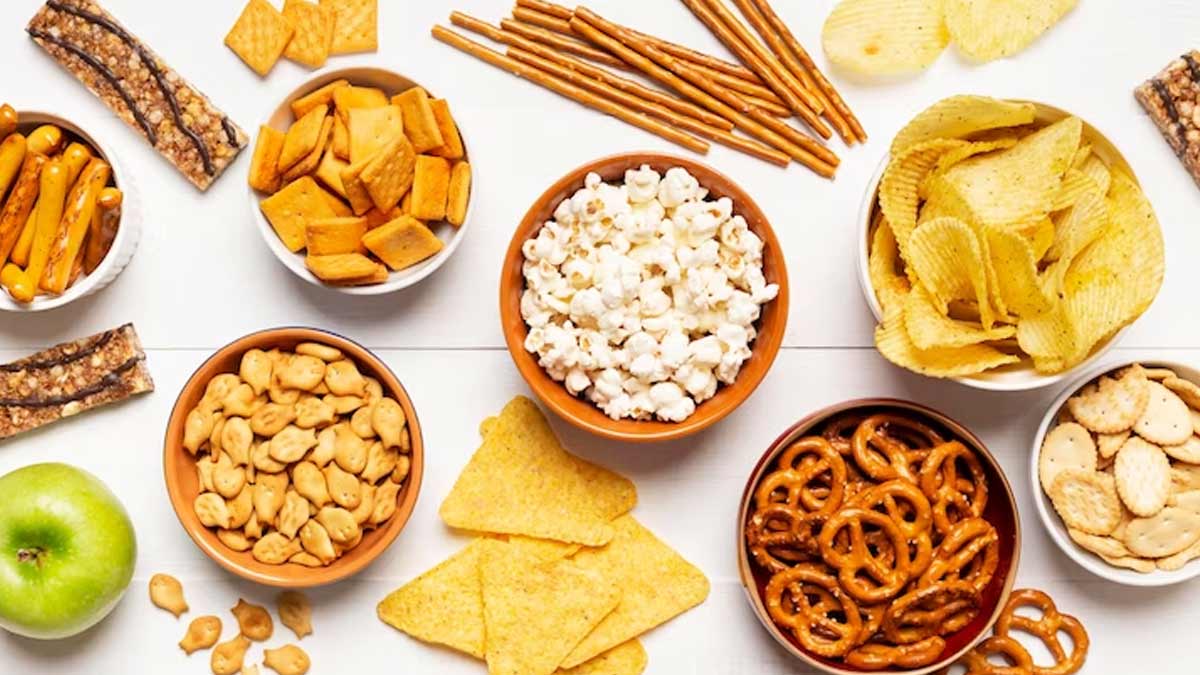
Salt is an essential ingredient in our kitchen. It not only adds flavour to our food, but also enriches our culinary experience, and drives several bodily functions as well. From regulating electrolytes and preventing muscle cramping to controlling fluid levels in the body, salt has many health benefits. However, too much salt consumption can lead to side effects. According to research, salt intake can be an independent risk factor for coronary heart disease.
Table of Content:-
Also Read: 6 Natural Alternatives To Sugar For Improved Overall Health
Why Is It Harmful To Eat Too Much Salt?

Dr Subhash Chandra, Consultant, Internal Medicine, Amrita Hospital, Kochi, says, "Excess salt consumption (one of the main sources of sodium) is harmful and can lead to hypertension, heart attacks and strokes."
"According to the US Centre for Disease Control and Prevention (CDC), the salt content is best restricted to less than 2.3 gm per day, which restricts the development of hypertension and subsequent complications of heart attacks and strokes. In addition, societies where salt intake is restricted generally don't develop the high blood pressure as compared to societies with high salt intake," he adds.
Side Effects Of Eating Too Much Salt
Dr Chandra says, "In the short-term, excess salt consumption can have various negative health effects. It can lead to increased blood pressure, especially in those with hypertension, and fluid retention, which can cause bloating and swelling. Headaches may also occur, particularly in individuals who are sensitive to sodium. Additionally, fatigue and weakness can result from excessive sodium intake. In some cases, people with salt-sensitive digestive systems may experience nausea and vomiting due to consuming high salt levels."
"Excess salt consumption also leads to fluid retention in the body. Therefore, patients with cardiac, hepatic and renal dysfunction are advised to reduce their salt intake and restrict it to 2 gm/day. However, at the same time, complete avoidance of all salt is also not advisable as that may lead to a condition of reduced sodium called hyponatremia which can make the patient drowsy or even develop seizures if the sodium level falls too low," he adds.
Also Read: Calcium-Rich Foods For Vegans
How To Minimise The Consumption Of Salt?

The doctor thinks that the majority of salt that we consume is derived from foods processed or prepared in restaurants.
"Restriction of processed and restaurant food intake will help reduce daily intake to manageable levels. One teaspoon of salt is roughly around 5-6 gm of sodium. Therefore, it is best to keep our salt intake at less than half a teaspoon overall," he says.
Bottomline
Salt enhances our culinary experience and brings life to what we eat. However, excessive intake of salt can be detrimental to health. Therefore, one should check the amount of salt they consume and must adhere to the guidelines of healthcare professionals. The US CDC recommends buying foods with no added salt or sauce. It says to "choose" packaged foods with labels that read "low sodium," "reduced sodium," or "no salt added". In addition, ensure that you compare the amount of sodium in different products by reading nutrition facts labels.
Also watch this video
Read Next
Calcium-Rich Foods For Vegans
How we keep this article up to date:
We work with experts and keep a close eye on the latest in health and wellness. Whenever there is a new research or helpful information, we update our articles with accurate and useful advice.
Current Version
